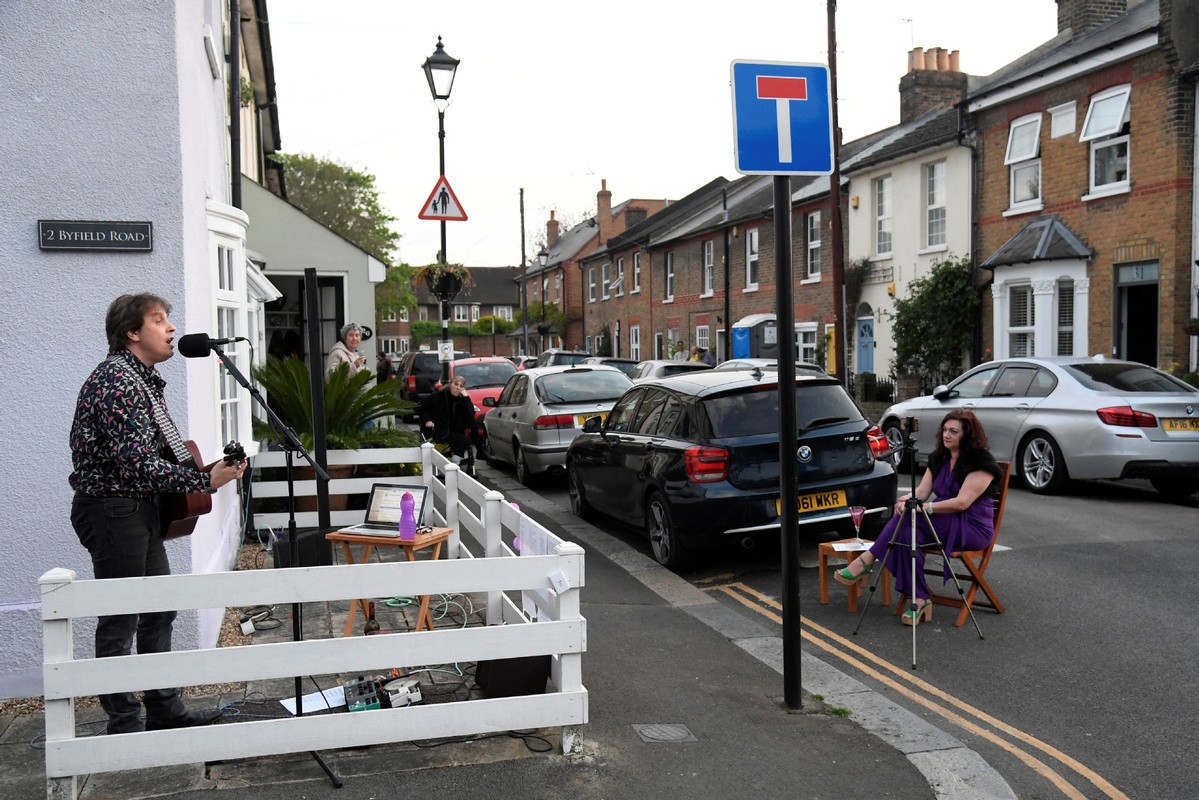'Slow start' is extending lockdown


The British government's slow response in implementing lockdown measures around the novel coronavirus outbreak, and its delay in rolling out mass testing, are two key reasons why the United Kingdom is falling behind other European countries on easing restrictions, according to an academic at Imperial College London.
Franklin Allen, a professor of finance and economics and executive director of the Brevan Howard Centre at Imperial College London, said: "The (UK) government did not respond quickly enough.
"I think they were looking a lot to scientists and the scientists did not give a particularly clear message on what was needed in terms of a lockdown, so they diverged from what many other European countries were doing in terms of a lockdown and they imposed it somewhat later.
"I think they made a big mistake in not prioritizing tests, and the other big mistake is not being able to get hold of antibody test that works properly, so both of those things have meant that it's going to be much difficult for us to emerge from the lockdown."
As of Tuesday, the UK has the fourth-highest death toll in Europe, and out of a population of nearly 67 million, has only carried out around 501,000 COVID-19 tests. That figure is significantly fewer than those done in Germany (population 83 million, around 1.73 million tests), Spain (population 47 million, more than 930,000 tests) and Italy (population 60 million, around 1.4 million tests).
Last week Foreign Secretary Dominic Rabb, who is deputizing for Prime Minister Boris Johnson as he recovers from the illness, said the lockdown in the country would remain in place for at least another three weeks.
Rabb stressed that relaxing measures will only be considered on the conditions that there is a consistent fall in daily death rate, infection numbers are at manageable levels, and that there is enough testing and personal protective equipment, or PPE, in place, adding that hospitals will need to have sufficient space to cope with the patients, so as not to overwhelm the National Health Service.
The UK's decision to further extend lockdown came as other European countries, such as Austria, Denmark, Czech Republic and Germany were unveiling plans to relax measures.
Allen said one advantage of being behind the curve is that the UK can learn from other countries' experiences. "At the moment, Spain for example, is opening construction sites and manufacturing, I think we can get some very interesting results on effects of that, and whether there is a health problem or not," he added.
Speaking about releasing lockdown when the condition is ready, Allen suggests it is better to do it "on a more granular basis than sector by sector", because there is still "a huge amount of heterogeneity across a particular sector.
"If you take construction industry…(which) creates a large proportion of the GDP in many countries. I think it depends very much on the nature of the building site, quite how much it can proceed with social distancing safely. Even doing sector by sector I think may be too blunt.
"What they should do is consider each particular site and how feasible social distancing is while producing, and then each firm can apply for the ability the start production again," he added.
Allen pointed out the reason that UK is in its current position is partially because "we focus a lot on what other European countries are doing; we do not focus nearly enough on China, South Korea, Singapore and Hong Kong and other places in Asia are doing.
"Asian countries have been much more successful and China in my view is an amazing example of how to control it," Allen said. "I do not think it is widely appreciated quite how few deaths and how normal China is."
As it stands, the UK government still does not control entry and exit into the country at the moment, and on the contrary, what happens in China is anyone who goes back to the country, is subject to a mandatory two-week quarantine.
Allen said: "In China, they control it very tightly and make sure it happens, but in the UK, they do not even take temperatures and there is no attempt to trying to figure out who has got the virus or not."
In the UK, the government is still struggling with basic things such as the testing capacity and the issue of PPE. "If you cannot get those basic things right, these kinds of more sophisticated things like controlling the entry and exit, and easing the lockdown, they are secondary compared to these very basic things," he said.
"This issue of why we do not follow more what they are doing in Asian countries is really an important one, and it would be very good if we understood much better how China has managed to get essentially, to a large extent, to normal and to eradicate it."
































